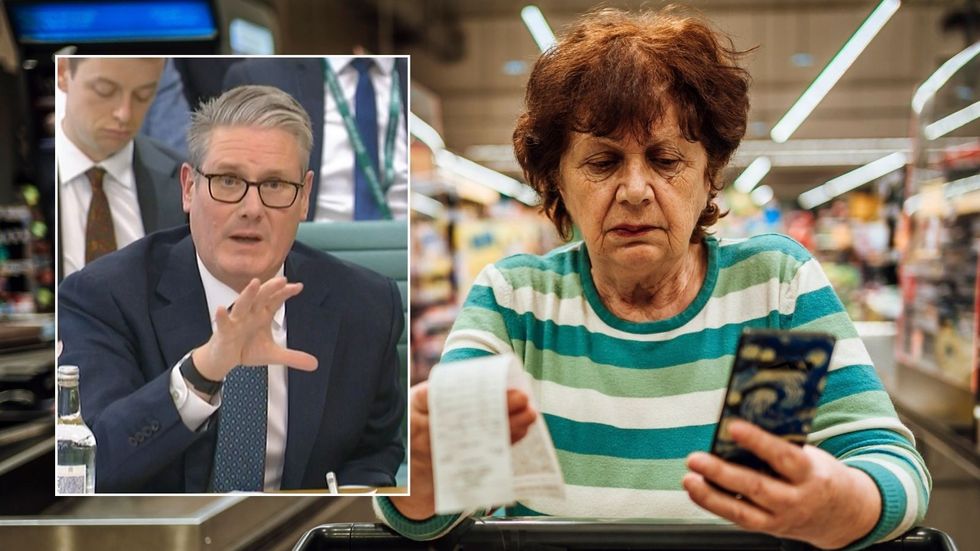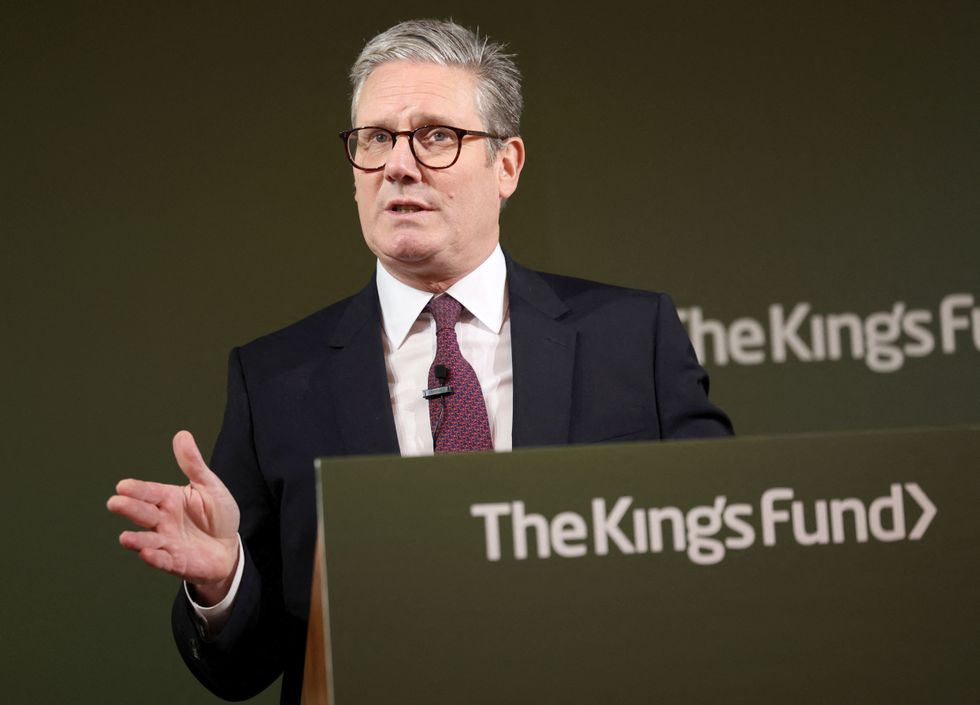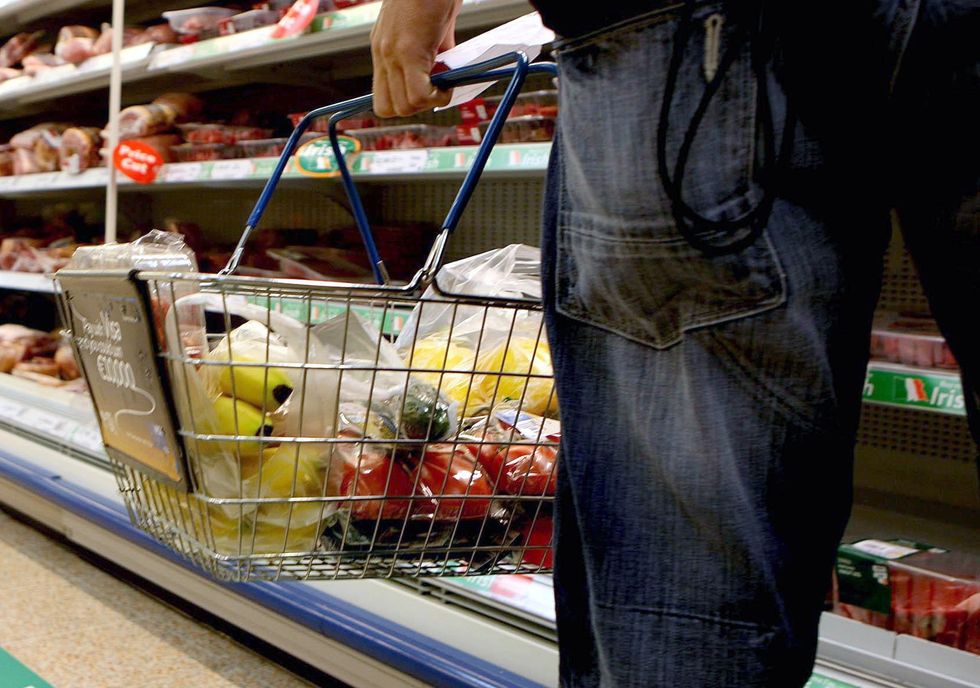Expert reveals brutal reality facing elderly farmers after Reeves’ tax raid
GB NEWS
Labour's 'grocery tax' will raise shopping bills and contribute to inflation, new analysis claims
Don't Miss
Most Read
Trending on GB News
A new "grocery tax" aimed at achieving net zero targets is set to cost British households up to £1.4 billion annually, The Telegraph reports. The green tax will add as much as £56 to annual household shopping bills, according to Government calculations.
The scheme, which charges retailers and manufacturers based on their packaging materials usage, has been quietly passed into legislation as part of the UK's waste reduction and net-zero strategy. Critics warn the measure will increase food costs for families while creating additional bureaucracy for businesses.
Under the Extended Producer Responsibility (EPR) scheme, which comes into legal force on January 1, 2025, businesses will face charges for packaging waste collection and disposal.
The system, originally devised by Michael Gove during his tenure as environment secretary, was previously put on hold following opposition from Conservative MPs and retailers. The first charges will be implemented in autumn 2025, shifting the cost burden from local authorities to manufacturers and retailers.
Despite the change in funding responsibility from council tax to businesses, there are no indications that councils will reduce resident taxes. According to Government forecasts, the scheme will increase household bills by £28 annually in a "low scenario."

Labour's "grocery tax" will raise shopping bills, new analysis claims
PA / GETTY
In the Government's "central scenario," costs will rise by £48 per year, while a "high scenario" could see increases of up to £56 annually. The British Retail Consortium believes Labour's £1.4billion cost estimate is too low, suggesting the true cost to retailers will be closer to £2 billion.
The Government expects 85 per cent of costs will be passed on to consumers in a "central scenario," rising to 100 per cent in a "high scenario." Lord McKinlay, chair of the Net Zero Scrutiny Committee, criticised the "rapidly introduced, yet little noticed grocery tax legislation."
"It heaps more than a billion pounds of new and unnecessary costs on consumers, but as ever when Government departments estimate implementation costs, these are often hopelessly underplayed," the Tory peer said.
He added: "It needs to be called out for what it is: yet another net zero tax which adds to consumer cost inflation, and further adds to the administrative burden on UK businesses. Another growth-destroying measure by an inept government."
Do you have a money story you’d like to share? Get in touch by emailing money@gbnews.uk.

Keir Starmer's Government is under fire
PAThe Government has published a schedule of "base fees" showing varying charges for different packaging materials in 2025/26. Plastic packaging will face the highest charge at £485 per tonne, followed by "fibre-based composite" at £455 per tonne.
Paper or board packaging will incur the lowest fees at £215 per tonne. Alternative materials such as bamboo or hemp will be charged at £280 per tonne. The Government's impact assessment acknowledges the policy will contribute to inflation, raising it by 0.07 per cent.
Lord Frost condemned the policy, stating: "Rishi Sunak's government came up with this plan and then rightly realised it was too expensive to introduce. Keir Starmer's Government doesn't care about that."
"They are obsessed with green politics and are quite happy to impose these new burdens on business which will boost inflation and push up food costs for every family," he said. He added: "Starmer claims to care about growth but his actions show the opposite."
Jim Bligh from The Food and Drink Federation acknowledged the potential for a "world-class recycling system" under the new regulations but cautioned the Government over how money generated from this tax raid is used.
He shared: "We know that transforming our recycling system will come at a significant cost. We need to ensure this money actually delivers for the UK and has as small an impact on prices for consumers as possible."
LATEST DEVELOPMENTS:

Experts are warning household supermarket bills could go up significantly
PAThe British Retail Consortium's Andrew Opie said the scheme could play a "vital role" in reducing unnecessary packaging. He added that the £2bn annual cost must deliver "a step change in recycling" to justify increased costs for customers and businesses.
A Defra spokesman defended the reforms, stating: "This Government will end our throwaway society and stop the avalanche of rubbish that is filling up our streets by increasing recycling rates, reducing waste and cracking down on waste crime."
According to the department, the packaging reforms will create 21,000 jobs and stimulate more than £10 billion investment in the recycling sector over the next decade.
"We continue to work closely with businesses, including the glass industry, on these reforms. We set out illustrative fees which are lower for almost all categories than originally proposed," the spokesman added.








